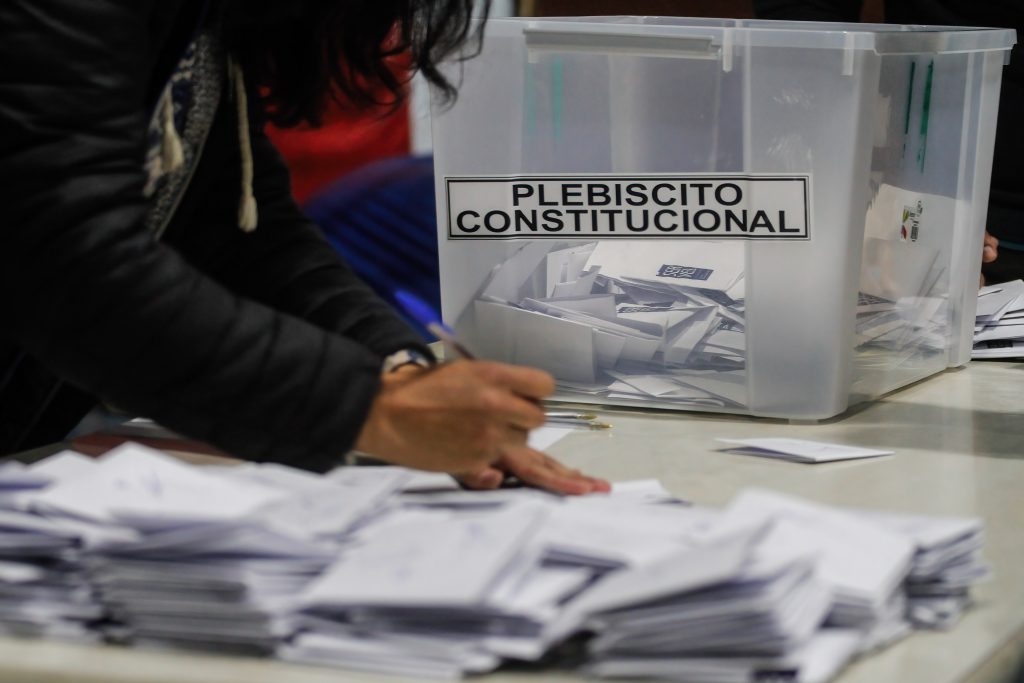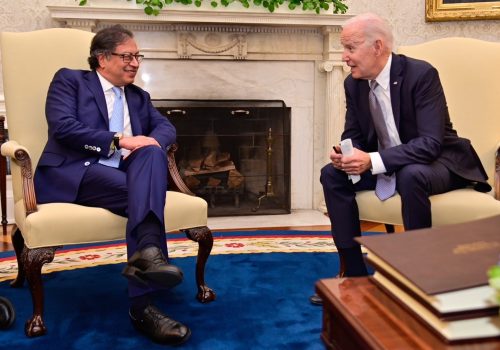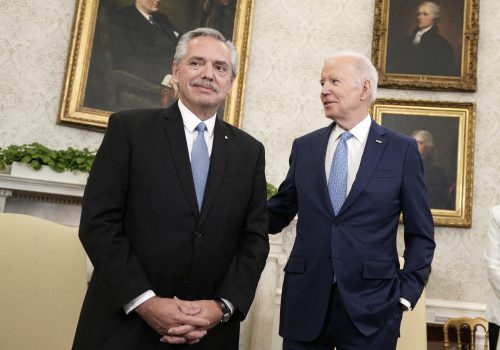The clock is ticking for Chile’s new constitution—again. Chileans took to the polls this month to elect a constitutional council, a fifty-one-member group tasked with discussing and approving a new national charter. The council will have just five months to deliberate the document after it first convenes, presenting it publicly by November 7 and putting it up for a national plebiscite on December 17. But will it be able to create a constitution that voters will approve after the failed first attempt last September?
Despite many observers’ initial beliefs that the new constitution would align with the governing coalition’s left-leaning political ideologies, the final tally of the May 6 vote showed a strong swing to the right, with nearly two-thirds of the available seats going to center-right and far-right candidates.
The far-right Republican Party, led by former presidential candidate José Antonio Kast, secured twenty-three of the available seats, granting the party veto power over constitutional articles. Alongside the eleven seats won by traditional right and center-right parties, the collective influence of right-leaning council members exceeds the crucial threshold of thirty-one votes (or 60 percent) required for approving constitutional clauses. While an alliance between the Republican Party and other right-leaning factions remains uncertain, there is a strong likelihood of these groups working together.
So, will the council agree on a new constitution? Hopefully yes. But it will also need to deliver one that is then approved by the majority of voters. In short, it is in the Republican Party’s best interest that the draft constitution does not solely embody conservative values. Absolute veto power and the ability to approve clauses by allying with traditional and center-right members of the constitutional council means that the elected members could create the constitution they want. But if the document they produce ends up being rejected in December, the party loses its opportunity to lead the process, a prospect that is unlikely to happen again.
Moreover, voters are watching this closely as a test case for how Republicans might govern. The optics of the party successfully delivering a democratically accepted legal charter would grant the Republicans a distinct advantage over left-leaning parties and could be regarded as the cornerstone for their campaigns in the upcoming 2024 mayoral and 2026 presidential elections. These factors make it imperative that the Republican Party remains open to compromise.
The right-wing members of the new constitutional council have an opportunity that should not be missed.
The results of the election also present a dilemma for left-leaning Chilean President Gabriel Boric and his administration, particularly as their approval rating continues to decrease. How do they continue to govern considering the country’s legal charter will almost certainly be more right-leaning than they anticipated? Will they continue working to build alliances with the right or reinforce their existing posture?
In a region that is struggling with the challenges of polarization, democratic backsliding, corruption, and violence, Chile’s positive trajectory in the constitutional reform process demonstrates the importance of fostering consensus. The first attempt at reform by a left-leaning constitutional convention, deemed the world’s most progressive constitution, was rejected by voters. A shift toward unity would serve as a powerful testament to the strength of Chile’s institutions and Boric’s commitment to democracy, transparency, and representation. Failing to do so could stagnate the constitutional reform process and impede Chile’s advancement as a democratic and economic frontrunner in the region. Such a scenario would not only diminish investor confidence, but also foster distrust in the regulatory environment that has thus far enabled businesses to operate confidently in the country.
On the other hand, more than three years after the Estallido Social took to the streets, Chileans have become increasingly detached from the constitutional reform process. After the first attempt at reform was rejected in 2022, the Chilean Senate and Chamber of Deputies appointed a panel of experts to compose a revised proposal. This will next be reviewed and approved by the constitutional council, thus limiting the involvement of the general population in the document’s drafting process.
Similarly, the issues that Chileans identified as the country’s most pressing problems in 2019—such as pension and health care systems—have fallen off the radar in favor of crime, inflation, immigration, and drug trafficking. With these day-to-day issues taking the spotlight away from systemic concerns, people in Chile have shifted their attention away from the constitutional process.
The constitutional council will meet for the first time on June 7 and will begin discussing the fourteen-chapter draft proposal written by the expert commission. On December 17 the final document will once again be presented for a national plebiscite, enabling Chileans to cast their votes and determine the approval or rejection of the new constitution.
The right-wing members of the new constitutional council have an opportunity that should not be missed. Delivering a non-polarizing constitution that is approved in December is in everyone’s best interest but will not be achieved unless the majority members compromise on conservative values to create a constitution that works to the benefit of every member of society.
Ignacia Ulloa Peters is an assistant director at the Atlantic Council’s Adrienne Arsht Latin America Center.
Further reading
Fri, Apr 28, 2023
Lithium drives the energy transition. Will Chile’s plan to nationalize production be a speed bump?
New Atlanticist By Ignacia Ulloa Peters, William Tobin
While state control of resources in Latin America regularly raises the alarms of investors, Chile's strong institutions and previous success create a positive outlook for its ability to deliver.
Fri, Apr 21, 2023
Can Colombia and the United States get on the same page?
New Atlanticist By
The two countries find themselves at odds on counternarcotics policy, but in synch on climate. Our experts break down the presidents' Oval Office meeting
Fri, Mar 31, 2023
The US and Argentine presidents left the most important words unsaid
New Atlanticist By Isabel Bernhard
Two issues—lithium and China—seem to have been sidestepped when Argentine President Alberto Fernández visited US President Joe Biden in Washington this week, but both are critical to the future of US-Argentina relations.
Image: Ballot box with votes seen during the constitutional council 2023 elections.



